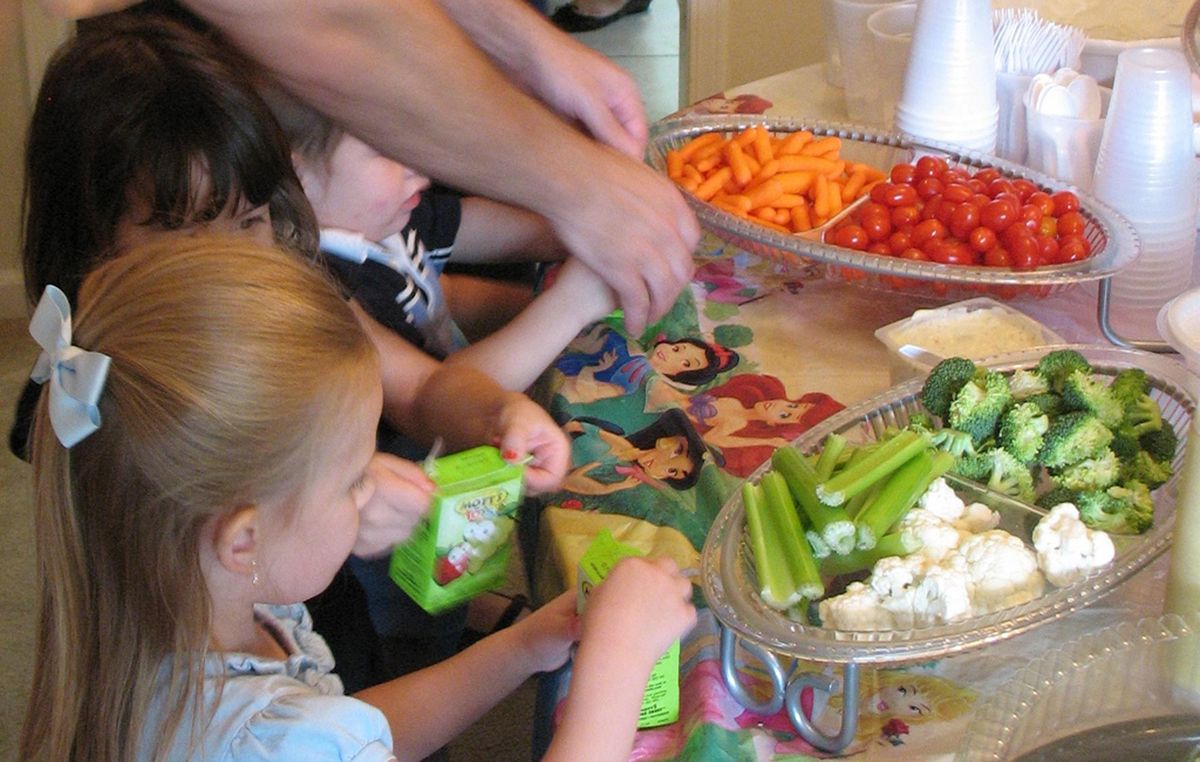Table of Contents
The other side of the coin is when vegetarian children don’t have a properly designed diet, according to their nutritional needs. The first concern is obviously the protein intake.

Bulky doesn't mean nutritious
Energy intake is also an important point to focus on, when designing a vegetarian diet for a child.
This is proven by references showing that vegetarian children tend to be smaller and lighter than non-vegetarians of the same age. This simply shows that energy requirements aren’t being fulfilled, affecting directly children’s growth.
Animal products also provide children with essential vitamins for their development, including vitamin D and B12. These are not present in plant foods in enough quantity for children to get them from a vegetarian diet, so it is very important to use vitamin supplements that ensure the intake of these vitamins and avoid long-term negative effects, specially on brain development and cognition.
Just as vitamins, essential minerals, such as iron and calcium can only be found in the right forms and quantities in meat, milk and dairy products. Supplements, as well as the consumption of soy products and iron rich vegetables, such as spinach, tomatoes and potatoes, can replace animal-derived minerals.
Should I be concerned about my vegetarian child?
Not at all. As long as parents are aware that they need to get professional assistance from pediatricians and nutritionists in order to make sure their children are properly nourished.
The most important thing when it comes to vegetarianism is to consume as many vegetables, fruits, legumes and nuts, as you can.
See Also: Protein Rich Foods For Vegetarians
Don’t stick to potatoes and tomatoes, bananas and apples. Having variety in your children’s diet will ensure the fulfillment of protein, vitamins and mineral needs, and will help you prevent diseases related to undernourishment, such as scurvy, anemia, osteoporosis, cognitive decline, among others.
It is easier nowadays, with so many vegetarian food offered in the supermarket to prefer processed over natural products. However, using natural fresh food is always the best option and will help you in offering your children a well-balanced natural diet that will keep them healthy and happy.
- DI GENOVA, T. & GUYDA, H. 2007. Infants and children consuming atypical diets: Vegetarianism and macrobiotics. Paediatr Child Health, 12, 185-8.
- Photo courtesy of U.S. Department of Agriculture by Flickr : www.flickr.com/photos/usdagov/8411841617/
- Photo courtesy of James Emery by Flickr : www.flickr.com/photos/emeryjl/5639076083/

